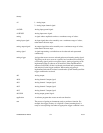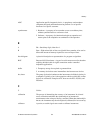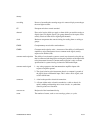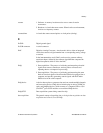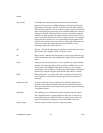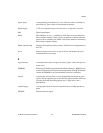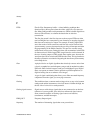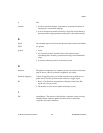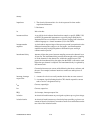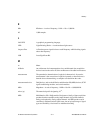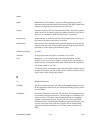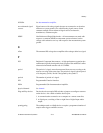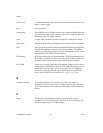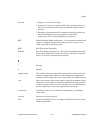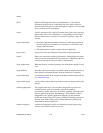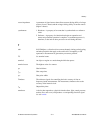Glossary
NI 6238/6239 User Manual G-10 ni.com
impedance 1. The electrical characteristic of a circuit expressed in ohms and/or
capacitance/inductance.
2. Resistance.
in. Inch or inches.
instrument driver A set of high-level software functions that controls a specific GPIB, VXI,
or RS232 programmable instrument or a specific plug-in DAQ device.
Instrument drivers are available in several forms, ranging from a function
callable language to a virtual instrument (VI) in LabVIEW.
instrumentation
amplifier
A circuit whose output voltage with respect to ground is proportional to the
difference between the voltages at its two inputs. An instrumentation
amplifier normally has high-impedance differential inputs and high
common-mode rejection.
interchannel delay Amount of time that passes between sampling consecutive channels in an
AI scan list. The interchannel delay must be short enough to allow sampling
of all the channels in the channel list, within the sample interval. The
greater the interchannel delay, the more time the PGIA is allowed to settle
before the next channel is sampled. The interchannel delay is regulated by
ai/ConvertClock.
interface Connection between one or more of the following: hardware, software, and
the user. For example, hardware interfaces connect two other pieces of
hardware.
interrupt, interrupt
request line
1. A means for a device to notify another device that an event occurred.
2. A computer signal indicating that the CPU should suspend its current
task to service a designated activity.
I
OH
Current, output high.
I
OL
Current, output low.
IRQ See interrupt, interrupt request line.
isolation An electrical break between any two signals or planes up to a given voltage.
isolation barrier An electrical break between two electrical planes providing a given or set
amount of electrical isolation. Current does not flow or transfer between the
two sides of the isolation barrier.



